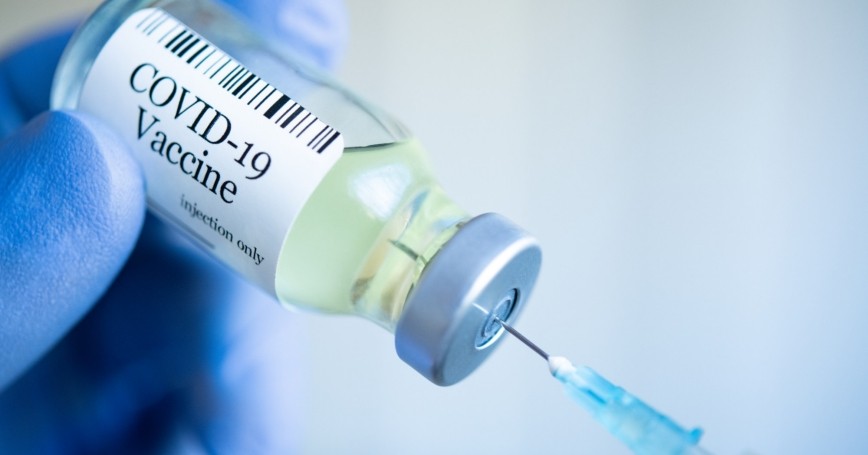
What & Why?
With the COVID-19 pandemic sweeping the globe, the development of an effective vaccine has been crucial to stopping the spread and danger of the virus. However, many people share differing views over vaccination and certain social groups in particular may be more or less likely to want or receive the vaccine, but what are these groups and why are they more hesitant?
Ethnicity?
Razai, Osama, McKechnie, & Majeed (2021) present that COVID-19 vaccine hesitancy among ethnic groups varies quite significantly. The importance of understanding these disparities only increases as mass vaccination efforts are being made, especially in nations such as the UK where there are many different social groups and large-scale COVID-19 outbreaks. Statistics up to the 14th of February 2021 showed that over 90% of adults in Britain have received or would be likely to accept the COVID-19 vaccine if they were offered it. On the other hand, some surveys have indicated much greater vaccine hesitancy among people from certain ethnic minorities. A UK based survey in December 2020 reported that vaccine hesitancy was highest among Black, Bangladeshi, and Pakistani populations when compared alongside people from a White ethnic background. Data from the NHS trust shows lower COVID-19 vaccination rates among ethnicities who are even healthcare workers (70.9% in White workers, 58.5% in South Asian, & 36.8% in Black workers).
It is so important to understand and mitigate these differences as the pandemic continues to have a disproportionate effect on people from ethnic minorities, with higher COVID-19 morbidity and mortality rates for the ethnic minorities showing higher vaccine hesitancy, and greater adverse socioeconomic consequences.
Vaccine hesitancy, characterised by uncertainty and ambivalence about vaccination, is a legitimate viewpoint, underscoring the failure or lack of effective public health messaging. Those who are hesitant can still be convinced of the vaccines’ safety, efficacy, and necessity. It is also important to state that being vaccine hesitant is very different from being an “anti-vaxxer”. The most common reasons for vaccine hesitancy for COVID-19 are genuine concerns about long-term side effects for health which is a fair argument to make (particularly found in young and Black respondents).
Willis et al. (2021) surveyed Arkansas adults in 2020 and found 1 in 5 people reported hesitancy to take a COVID-19 vaccine. Prevalence of COVID-19 vaccine hesitancy was highest for Black/African Americans. The odds of COVID-19 vaccine hesitancy were more than twice as high for Black/African American respondents when compared to White respondents.
Socio-economic?
Willis et al. (2021) also found that respondents in their study with annual household incomes of less than $25K and lesser levels of education were the next highest groups after Black/African Americans to have the highest vaccine hesitancy.
Bertoncello et al. (2020) furthermore support this trend of lower socio-economic backgrounds showing higher vaccine hesitancy. It was reported that rising levels of perceived economic hardship were associated with greater vaccine hesitancy, meanwhile, lower parental education was significantly associated with outright refusal of vaccinations.
Guary et al. (2019) conducted a total of 8,737 interviews across Quebec, Canada. Among all respondents, 32.2% were vaccine hesitant. It was highlighted that several beliefs were significantly associated with vaccine hesitancy. These were; the belief that children receive too many vaccines, the belief that a healthy lifestyle can eliminate the need for vaccination, and the belief that the use of alternative medicine practices can eliminate the need for vaccination. There were also other determinants associated with vaccine hesitancy such as having a low (less than $30,000) or even moderate ($30,000–$79,000) household income, distrust in public health authorities, perceived insufficient knowledge about immunisation, and smoking. These findings suggest that those on the lower socio-economic end of the scale have higher vaccine hesitancy, as well as sharing other determinants that could lead to this. Engagement in well known unhealthy activities such as smoking may explain higher vaccine hesitancy in regards to ignoring or dismissing negative health impacts. It can also be seen that distrust and perceived lack of proper education about vaccines are also strong reasons for people being hesitant. This emphasises the need for widespread and clear education about realistic impacts and scientific support for vaccines to bolster these groups of people to engage with them.
To see more about vaccine hesitancy please see the links below:
Bertoncello, C., Ferro, A., Fonzo, M., Zanovello, S., Napoletano, G., Russo, F., … & Cocchio, S. (2020). Socioeconomic determinants in vaccine hesitancy and vaccine refusal in Italy. Vaccines, 8(2), 276.
Guay, M., Gosselin, V., Petit, G., Baron, G., & Gagneur, A. (2019). Determinants of vaccine hesitancy in Quebec: a large population-based survey. Human vaccines & immunotherapeutics.
Razai, M. S., Osama, T., McKechnie, D. G., & Majeed, A. (2021). Covid-19 vaccine hesitancy among ethnic minority groups.
Willis, D. E., Andersen, J. A., Bryant‐Moore, K., Selig, J. P., Long, C. R., Felix, H. C., … & McElfish, P. A. (2021). COVID‐19 vaccine hesitancy: Race/ethnicity, trust, and fear. Clinical and Translational Science.
—
Thank You,
Jack Pink
—
Fundraising & Marketing Intern







Recent Comments